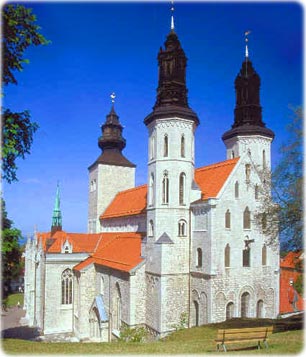
Sweden
Sweden (local: Konungariket Sverige) is one of the Scandinavian countries, a Constitutional monarchy in Northern Europe. The capital is Stockholm.
Sweden is a military power since the 17th century. Today it has a successful economic formula of a capitalist system interlarded with substantial welfare elements. The country entered the European Union in 1995.


Geography
Administrative divisions: 21 counties (lan, singular and plural); Blekinge, Dalarnas, Gavleborgs, Gotlands, Hallands, Jamtlands, Jonkopings, Kalmar, Kronobergs, Norrbottens, Orebro, Ostergotlands, Skane, Sodermanlands, Stockholms, Uppsala, Varmlands, Vasterbottens, Vasternorrlands, Vastmanlands, Vastra Gotalands.
Terrain: mostly flat or gently rolling lowlands; mountains in west. Highest point: Kebnekaise 2,111 m.
Total area: 449,964 km². Coastline: 3,218 km.
Climate: Temperate in south with cold, cloudy winters and cool, partly cloudy summers; sub arctic in north.
Ports and harbors: Gavle, Goteborg, Halmstad, Helsingborg, Hudiksvall, Kalmar, Karlshamn, Lulea, Malmo, Solvesborg, Stockholm, Sundsvall. Note: ice floes in the surrounding waters, especially in the Gulf of Bothnia, can interfere with maritime traffic.
People
Population: 10 million (2018).
Religions: Church of Sweden (Lutheran) 61.3%, other (includes Roman Catholic, Orthodox, Baptist, Muslim, Jewish, and Buddhist) 8.2%, none or unspecified 30.5% (2016 est.).
Ethnic groups: Swedish 81.5%, Syrian 1.7%, Finnish 1.5%, Iraqi 1.4%, other 13.9%.
Language: Swedish (note: small Sami- and Finnish-speaking minorities).
Main source: CIA - The World Factbook.
Partial view of Göteborg.

|
◄ Europe |
Visby Cathedral, Gotland, Sweden.
Gamia Staden area, Old Town Stockholm.
|
Copyright © Geographic Guide - Travel European Continent. |
Stockholm aerial view, Sweden.


Sweden

Per Pixel Petersson